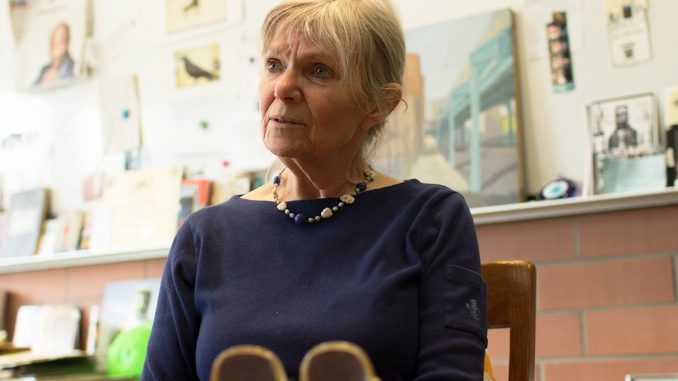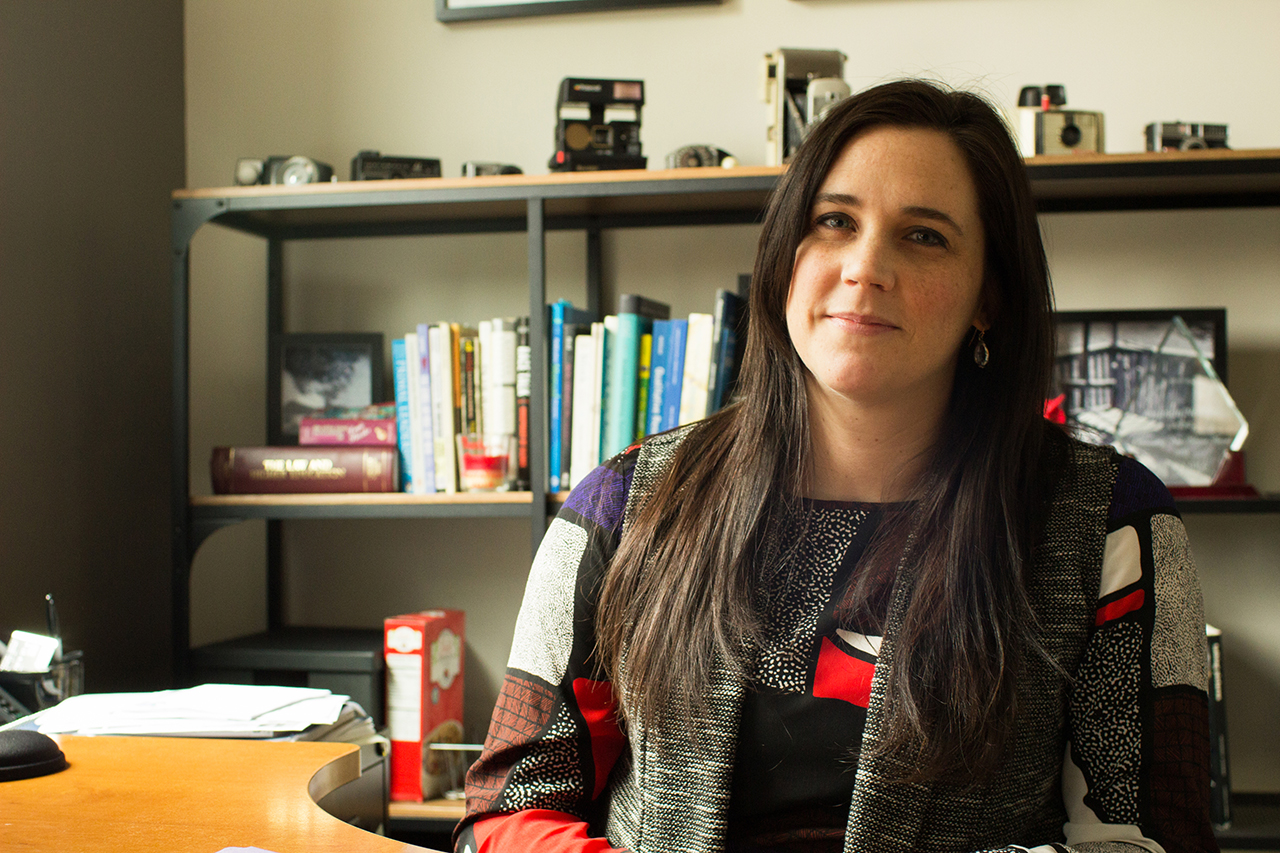
When the Honors Program was housed in Ritter Annex, Senior Director Ruth Ost said its space there was only “as big as a closet.”
In 1999, the office relocated to the second floor of Tuttleman Learning Center. The program grew into the new office and a student lounge big enough to fit the increasing number of Honors students.
Since its inception, the program has grown from about 250 students to more than 2,000 today.
On Friday and Saturday, faculty, staff, alumni and donors will celebrate and raise funds for the Honors Program in recognition of its 30th anniversary.
The celebration will begin on Friday at 7 p.m. with a Distinguished Alumni Talk, held on the first floor of Tuttleman.
Mena Mark Hanna, a 2006 music composition alumnus will be given the new Distinguished Alumni Award, created by the Honors Alumni Council. Hanna is the founding dean of the musicology and composition program at the Barenboim–Said Academy, a music conservatory in Berlin.
The second day of celebration will be a birthday gala at the Ruba Club in Northern Liberties at 6 p.m.
This weekend’s events mark the first time the Honors Program has celebrated an anniversary since its inception, said Ost, who has worked in Honors for the last 23 years.
She said this anniversary represents a landmark moment in the history of the program.
“You’re on the cusp when you’re 30,” Ost said. “You’ve got the whole future ahead of you, and we’re at that place right now. We’ve crossed that big divide, and so now we will see what the future holds.”

In addition to celebrating its 30th anniversary, the Honors Program is also fundraising.
Zach Martin, the program’s senior academic adviser who organized the celebratory weekend, said the Honors Program will use the money from Saturday’s gala to start a new microgrant program.
“Because it’s the 30th anniversary, we’ve been thinking about our alumni and the past of Honors and thinking about the future of where Honors is going,” Martin said.
Students can use these microgrants for anything from funding a monthly SEPTA pass to commute to an internship or putting on a small art show.
“We are thinking very broadly about it,” Ost said. “It’s to acknowledge the creativity of our students and to say, ‘Here’s a little bit of money we might be able to share with you to create a project that you can’t otherwise do.’”
Previously, the program never had the budget to do something like this.
“We are hoping that the alumni will appreciate the value of the Honors Program and contribute to help be the life support for [current students],” Ost said.
The Honors Program has changed extensively during its 30 years of existence. The program originally only lasted for two years, but in 2004, it grew to become a full, four-year program, Ost said.
In the two-year program, students were allotted eight upper-level classes to complete during the span of two years. Now as a four-year program, students must take a minimum of 10 Honors classes.
As for the future of the program, Ost wants to see Temple add more space for Honors students than what is currently available in Tuttleman.
Nadira Goffe, a senior English major, has been in the program for all her four years at Temple. She originally studied biochemistry, but decided to switch her major.
“The [Honors Program was] really supportive and encouraging and informative throughout that whole process,” Goffe said.
Goffe said she became more involved with the program by hanging out in the Honors Lounge.

“I made most of my friends by hanging out there and inserting myself into other people’s conversations,” Goffe said. “[Honors] opened my eyes to being able to prepare and shoot for things that I wouldn’t necessarily think that I would be a fit for or could accomplish.”
Ost said some faculty members went through the Honors Program. People like human resources management professor Crystal Harold, psychology professor Jason Chein and Spanish professor Joshua Pongan were all once Honors students.
Harold, a 2000 psychology alumna, said she thinks the growth of the Honors Program attracts students to the university.
“The presence on campus was a lot different when I was a student,” Harold said.
“Now the resources available Temple-wide and also in the Honors Program are what really attracts students to Temple,” Harold added. “Things like the study abroad programs and student immersion program are being more taken advantage of now with Honors students.”
Ost said the Honors Program is a small community of “nerds” who are passionate about academics and being successful.
“If in any way we can help them to fulfill their dreams, we totally will come down at their side and say, ‘Maybe you should dream more wildly than you have,’” Ost said.


Be the first to comment